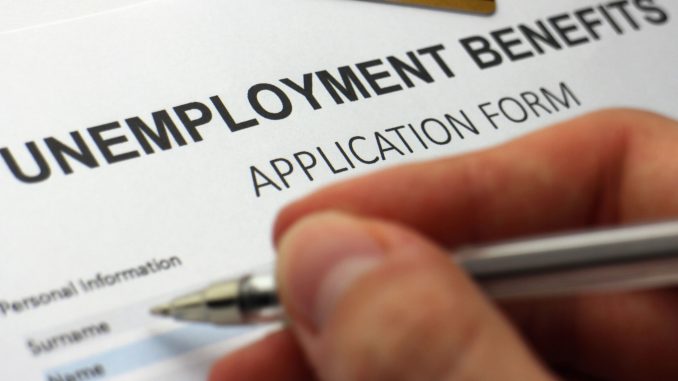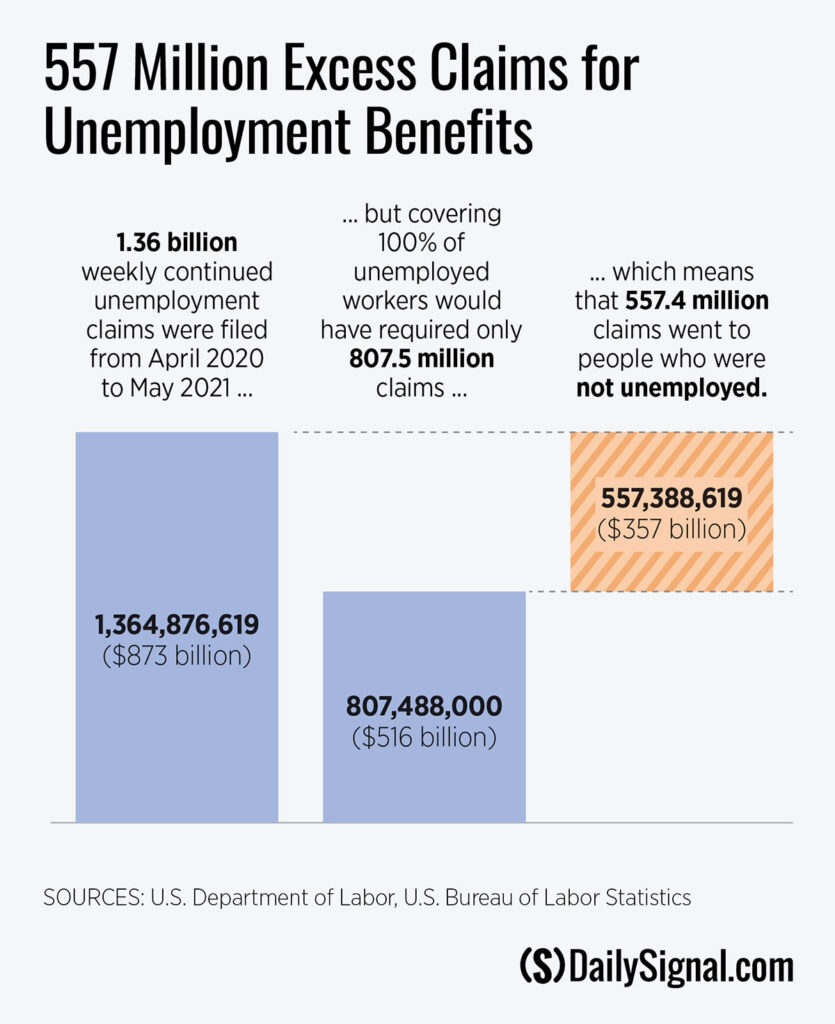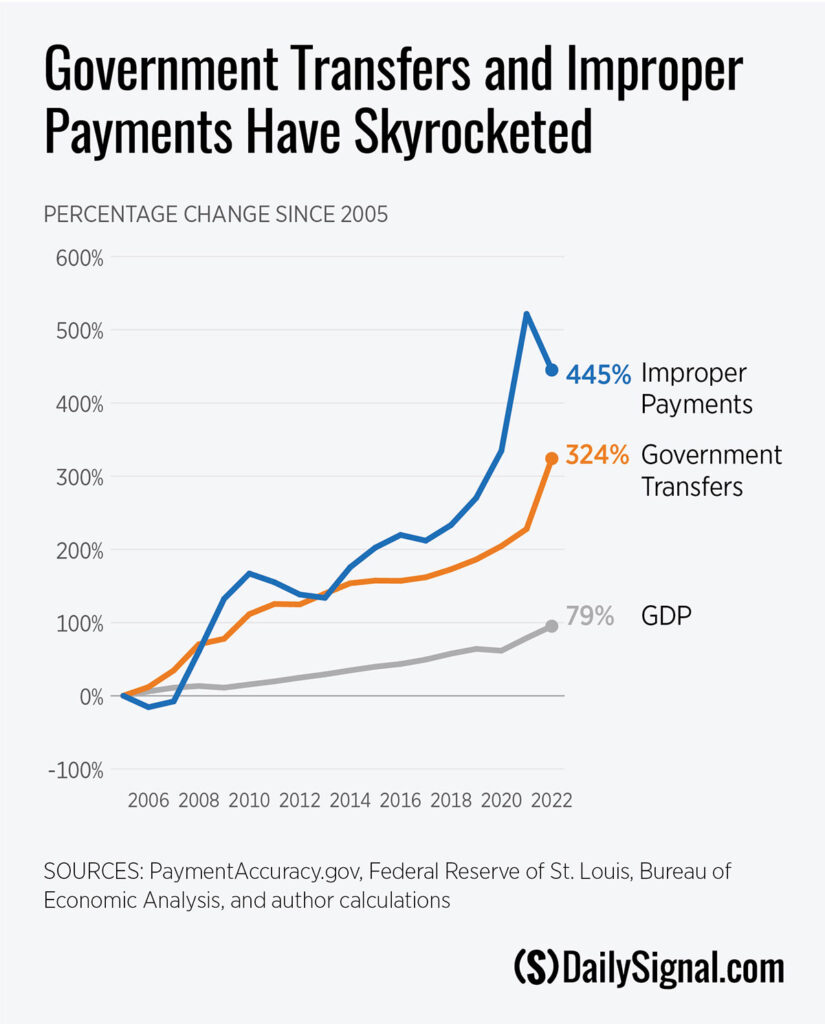
You know there’s a problem when the rounding unit for a federal program’s improper payments equals the annual incomes of 13,408 U.S. households.
In emails obtained by The Heritage Foundation’s Oversight Project through a Freedom of Information Act request revealed a Department of Labor official stating that, when measuring improper federal government payments, “We only deal in billions in the [unemployment insurance] program.” (The Daily Signal is the news outlet of The Heritage Foundation.)
Testimony from the Government Accountability Office noted that the Department of Labor reported $78.1 billion in improper payments through the federal pandemic unemployment insurance programs in 2021 and $18.9 billion in improper payments in 2022.
But actual improper payments are higher. The Department of Labor’s Office of Inspector General reported in June that, of “the approximate $888 billion in pandemic UI expenditures, at least $191 billion in pandemic UI payments could have been improper payments, with a significant portion attributable to fraud.”
An analysis I published for The Heritage Foundation estimated even higher potentially improper payments. Comparing total UI benefits to the total number of unemployed people, I found that at least $357 billion in unemployment insurance benefits went to individuals who were not unemployed.

Fraud and improper payments were exceptionally high in COVID-19 pandemic-related programs, but the federal government has been regularly sending upwards of $100 billion per year in improper payments since 2009.
The trend is clear: The bigger the federal government becomes and the further it strays from its core constitutional duties, the less accountable the federal government becomes.
Between 2005 and 2022, federal transfer payments increased at more than three times the rate of gross domestic output, and improper payments surged at 4.5 times the rate of the economy.

Instead of a federal government focused on providing a national defense and a system of justice, the federal government’s primary function (at least according to its budget) is taking money from people and redistributing it to others.
In 2022 alone, the federal government spent $4.8 trillion, or $37,000 per household, on transfer payments. Of that, $245 billion or nearly $1,900 per household were improper payments.
While the federal government has become so bloated that it rounds the mistakes it makes with taxpayers’ dollars to the nearest billion (that’s 10 digits: $1,000,000,000), the typical American household would be hard-pressed to misspend even $100. That’s particularly true as spending-induced inflation reduced the median family’s income by $1,750 in 2022.
To help protect workers from having their hard-earned taxpayer dollars wasted on improper payments and from spendthrift politicians indebting American households with the equivalent of a second-mortgage, policymakers must impose accountability on taxpayer-funded programs and refocus the federal government on its core functions.
A report of mine, “As Administration Cracks Down on Taxpayers, Government’s Own Improper Payments Go Unchecked,” provides more than a dozen recommendations for policymakers to prevent improper payments and protect the integrity of taxpayers’ money.
In short, that report calls on lawmakers to: require that federal programs verify that people are who they say they are and that they are eligible for the benefits they claim; impose accountability on federal program administrators; and limit the number of government programs ordinary Americans need to interact with so that the government can take less and waste less of taxpayers’ hard-earned incomes.
Have an opinion about this article? To sound off, please email letters@DailySignal.com, and we’ll consider publishing your edited remarks in our regular “We Hear You” feature. Remember to include the URL or headline of the article plus your name and town and/or state.

Be the first to comment